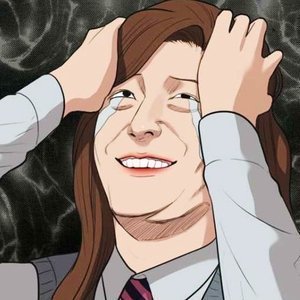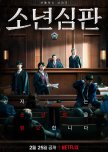It takes a village to raise a child…
A tale of a broken system and juvenile crime.
Who is at fault when a child commits a crime? Juvenile Justice tries to present the complexity of the issue, and for the most part, it succeeds (as much as a fictional drama can). It presents kids as both the victims and perpetrators, rightfully pointing out the roles are not mutually exclusive. It shows the effects of neglect, bad or lack of role models, abuse.
A small group of people trying to do their best in the system that does not support their efforts and does not protect the people it was created to protect. While showing the gruesome reality, it sticks to a more positive, but still realistic approach. Often justice is served, but only in the frame of the current juvenile court system, that for many is not harsh enough.
From the first, till the last episode the drama does not fail to keep the tension high, keeping me on the edge of my seat. The cases are not one dimensional, showing different sides and perspectives, at times, leaving me with only one conclusion: everyone failed - the parents, the teachers, the judges, the kids themselves.
The plot and presentation wise, the only thing that it lacks in my eyes is the context some of the kids were in. What pushed them to become what they are? What could be the possible motives for their actions? What behavior was a norm in their house? These are the questions I hoped to get a more elaborated answer for than a short note “abused by step-father” in the case file.
Moving back to the positive aspects: I appreciate how we do not get an outstanding character development from any of the main cast. They all made mistakes, they all got carried away by their emotions and fears. That said, how they handled Na Geun Hee’s character by the end of the show left me with a few things to desire. Did not buy that arc, which might have been the result of the lack of the screen time.
Acting wise - no complaints. For a show full of the younger cast, all kids and teens did an amazing job with presenting their characters. Especially impressed by Lee Yeon. To present a believable acting of a teenage boy, when she is a 27 years old woman, must have been quite a challenge.
As for the production, even the opening scene made me love the visuals of the drama. The dark and cold tones used throughout the show intensified the gloomy atmosphere surrounding tacked topics.
Trigger warning - the drama presents quite a number of scenes showing child abuse. They are not short, they are not vague.
Overall, as long as you can handle child abuse and exploitations of children, this is a drama most people should watch. Understanding that kids are capable of doing evil acts is a first step to figure out how to prevent tragedies from happening. Turning a blind eye and giving excuses is not a solution, as it gives only one message: no matter how drastic measures you will take, no one will care. Supporting them through their struggles while punishing for the wrong actions should become a standard.
Who is at fault when a child commits a crime? Juvenile Justice tries to present the complexity of the issue, and for the most part, it succeeds (as much as a fictional drama can). It presents kids as both the victims and perpetrators, rightfully pointing out the roles are not mutually exclusive. It shows the effects of neglect, bad or lack of role models, abuse.
A small group of people trying to do their best in the system that does not support their efforts and does not protect the people it was created to protect. While showing the gruesome reality, it sticks to a more positive, but still realistic approach. Often justice is served, but only in the frame of the current juvenile court system, that for many is not harsh enough.
From the first, till the last episode the drama does not fail to keep the tension high, keeping me on the edge of my seat. The cases are not one dimensional, showing different sides and perspectives, at times, leaving me with only one conclusion: everyone failed - the parents, the teachers, the judges, the kids themselves.
The plot and presentation wise, the only thing that it lacks in my eyes is the context some of the kids were in. What pushed them to become what they are? What could be the possible motives for their actions? What behavior was a norm in their house? These are the questions I hoped to get a more elaborated answer for than a short note “abused by step-father” in the case file.
Moving back to the positive aspects: I appreciate how we do not get an outstanding character development from any of the main cast. They all made mistakes, they all got carried away by their emotions and fears. That said, how they handled Na Geun Hee’s character by the end of the show left me with a few things to desire. Did not buy that arc, which might have been the result of the lack of the screen time.
Acting wise - no complaints. For a show full of the younger cast, all kids and teens did an amazing job with presenting their characters. Especially impressed by Lee Yeon. To present a believable acting of a teenage boy, when she is a 27 years old woman, must have been quite a challenge.
As for the production, even the opening scene made me love the visuals of the drama. The dark and cold tones used throughout the show intensified the gloomy atmosphere surrounding tacked topics.
Trigger warning - the drama presents quite a number of scenes showing child abuse. They are not short, they are not vague.
Overall, as long as you can handle child abuse and exploitations of children, this is a drama most people should watch. Understanding that kids are capable of doing evil acts is a first step to figure out how to prevent tragedies from happening. Turning a blind eye and giving excuses is not a solution, as it gives only one message: no matter how drastic measures you will take, no one will care. Supporting them through their struggles while punishing for the wrong actions should become a standard.
Vond je deze recentie nuttig?


 157
157 365
365 95
95























